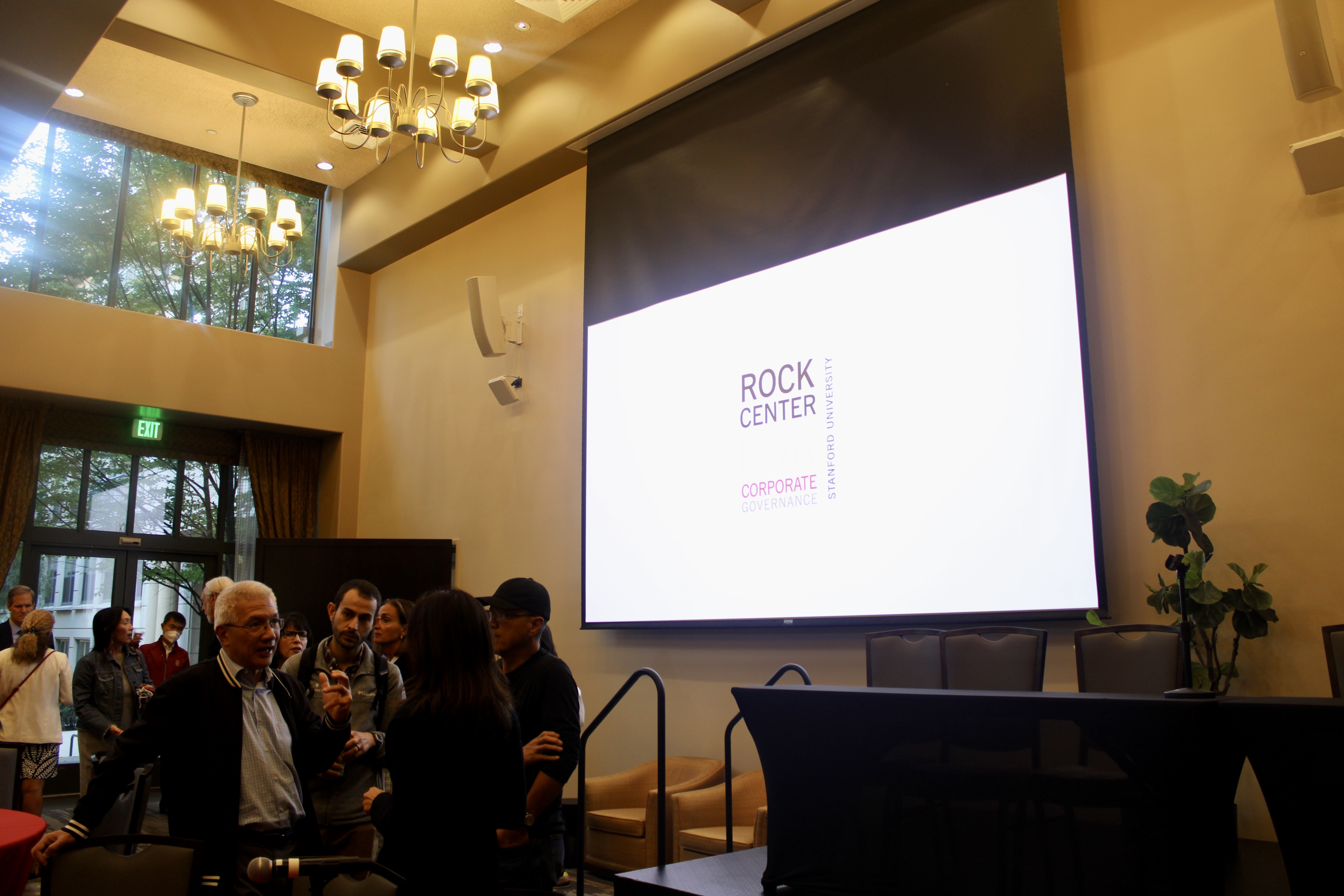Intel Chief Executive Officer Pat Gelsinger ’85 urged corporations in Silicon Valley to place more emphasis on facilitating safe spaces for religion at work during “The Role of Faith in Business in Silicon Valley,” a speaker event held Thursday.
At the event, which was sponsored by the Rock Center for Governance, Gelsinger was joined by a panel of experts at Paul Brest Hall to discuss how faith has changed for employees and corporations in Silicon Valley. The speakers discussed how corporations can facilitate faith and define a company’s role in developing a culture of diversity, equity and inclusion within and outside of their organizations.
Gelsinger began the event with a fireside chat about how he has attempted to view the world through diverse perspectives.
“I grew up in the most homogeneous area in Pennsylvania,” he said, referring to his upbringing in Robesonia. “Because I grew up in such a homogeneous environment, as a leader, you have to be self-deprecating. I realized that relationships triumph results, and I was living my life like results triumph relationships.”
He said pressure is increasing on corporate leaders to take charge on social issues and challenged this idea by saying that he “is not to be the social conscience of the nation.”
“I frame issues through the topic of things that we care about as a business,” Gelsinger said. As an example, take Black Lives Matter. Are we doing enough for historically Black universities through the lens of what I care about?”
In 2021, Intel pledged to donate $5 million dollars over the next five years to North Carolina Central University, a historically Black university, to create a new tech law and policy center.
Participants of the event said they were glad to learn more about religious diversity in the tech industry. They said that they left with new approaches for addressing conflicts involving culture and tradition at their respective businesses.
Yiyi Jin, a general counselor at News Break, attended the program because she was excited to learn more about the subject of the event. She said the comments and statistics that the speakers shared helped broaden her view of diversity and inclusion in the industry.
“Companies need to think about their diversity and inclusion,” she said.
The second part of the program involved a panel discussion led by law and business professor Robert Daines.
University of California, Berkeley ethnic studies associate professor Carolyn Chen, who was on the panel, opened the discussion by talking about findings from her research, namely that religious Silicon Valley employees face troubles balancing both their faith and their work life.
“I noticed a really striking difference between tech workers who were religious and those who are not religious,” Chen said. She found that most religious workers reported not sharing their cultural identity with others — an issue when work “is an important source of spirituality and a sense of mission.” Chen also said that “Tech workers bring their whole selves to work… Religious workers in the United States [don’t] have time to join two faith communities.”
At the end of the panel, she asked the audience, “Are you making your faith fit into your work? Or are you making your work fit into your faith?”
Garrett Johnson, who co-founded cloud-hosting service Hydra Host and Lincoln Network, also shared his research into the Bay Area tech industry. According to Johnson, nearly half of the respondents in his research identified as being atheistic or agnostic which is much higher than the national rate.
Johnson said that this number is worrying for communities of faith around the nation as “the tech industry is shaping so much of culture.”
Jordana Stein, the chief executive editor and founder of enrich, a private network that connects clients with peers in similar roles at different companies, said that she was seeing “two perspectives merge” at the panel.
“The first is for the company to take a position that creates a strong culture where everybody feels very clear on where the organization stands [about religious diversity],” Stein said. She said the second and “more common” perspective, involves creating support groups and programs for different social identities.
The main distinction lies in whether the leaders of an organization should take total initiative in creating diversity and inclusion or aid in facilitating communities that workers create amongst themselves.
The program ended with concluding comments from David W. Miller, director of Princeton’s Faith & Work Initiative.
He said that large tech corporations should make room for all faith traditions.
“From atheism to Zoroastrian, they all have to have a seat at the table and an equal seat in order to create an environment of passivity and of respect, not just toleration as a minimum standard,” Miller said.
